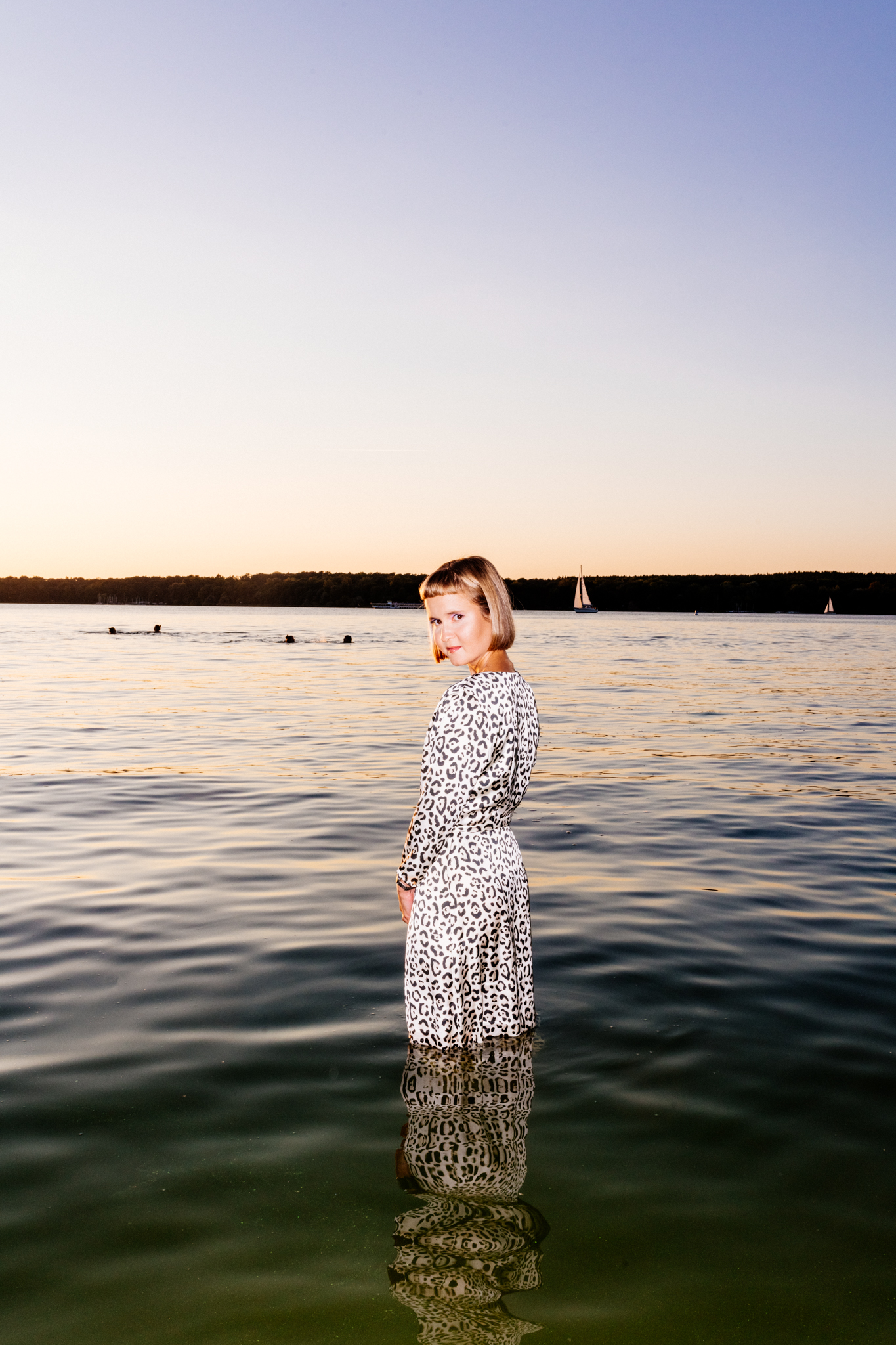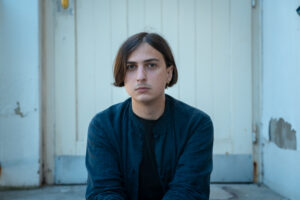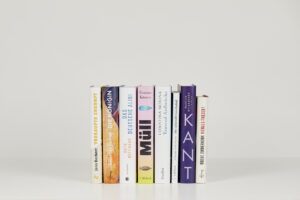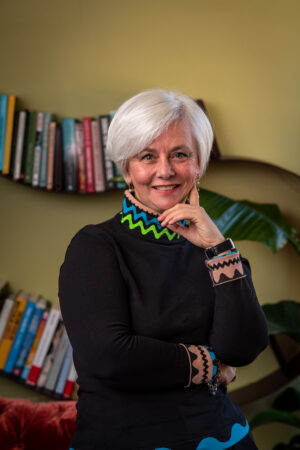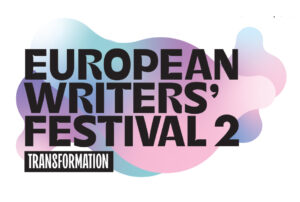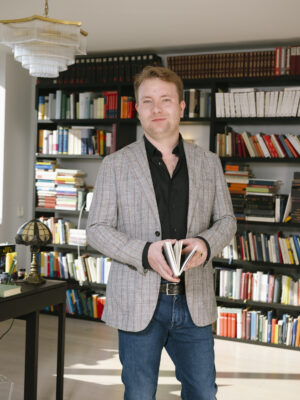German author, Caroline Wahl, speaks to New Books in German about her prize-winning debut novel, 22 Lengths (22 Bahnen), and its sequel, Gale Force 17 (Windstärke 17), due to be published in May 2024. Our jury recommends both books for translation into English.
Sheridan Marshall: Did you always know that you wanted to be a writer? Can you tell us how your writing career has developed?
My writing career took off and I realised relatively quickly that I couldn’t do a regular job alongside my reading workload
Caroline Wahl
Caroline Wahl: No, not at all. I have actually always enjoyed writing. Diaries, short stories, letters, school homework. But I never knew that I had it in me (ha ha!) and I never dared, even to myself, to articulate the dream of becoming an author. It was clear to me that I wanted to do something to do with literature at university and professionally, and later preferably work in publishing, and when I was working in publishing, the desire and also my self-confidence to give it a go and write a novel became stronger. And then it worked out and somehow happened in quick succession. My writing career took off and I realised relatively quickly that I couldn’t do a regular job alongside my reading workload, and didn’t need to do it financially. It was cool and I was proud to take the step of quitting my job at the agency. I am now a full-time author and it feels so good and right, and I never want to do anything else again.
SM: What does a typical working day look like for you as a writer?
CW: When I am at home and not away on a reading tour, very boring. I get up in the morning (definitely much later now than when I had a normal job), make myself a coffee and sit down at my desk, answer emails and do other correspondence until my brain is awake and then I write. When my head doesn’t want to go any more, I go out for a run, a swim or shopping and then I do another session in the afternoon. I usually have music on at the same time, preferably Christian Löffler. In the evening, I reward myself with trash TV.
Sometimes I also go to a café in the afternoon. That’s actually the nice thing about my job. I can work anywhere, on the train, on holiday, in the waiting room, I can take my writing, my home, with me wherever I go.
SM: Who would you describe as your most important literary role models?
CW: That’s a bit like asking a mother to name her favourite child. I think Angelika Klüssendorf, Franz Kafka, and Wilhelm Raabe are great, but I don’t have any role models as such. When I write, I don’t think about other texts or authors that I want to emulate. I’ll go my own way.
SM: Your debut novel, 22 Lengths (22 Bahnen), is a haunting story about growing up with an alcoholic mother. How did you come up with the concept for this book?
CW: There was no definite concept. I wanted to tell the story of a strong, young woman who comes from a difficult background and fights her way through. And I wanted this woman to have a tender, loving and dreamy side alongside the tough, cool, almost brutal side, which is most apparent in her dealings with her little sister. Tilda was just there in my head and I thought about what her everyday life would be like, how she works in the supermarket, studies maths, swims every evening, and how the windows are steamed up when she comes home on the first day of the novel, because her alcoholic mother has cooked again while little Ida sits in her room and paints. And then it flowed out of me.
SM: I really liked the tender relationship between the two sisters, Tilda and Ida, in this novel. What was the experience of writing this relationship like?
CW: The sisterly relationship, this unconditional love, was also what gave me the most while I was writing. I wrote the novel during a difficult time: I had a stupid job and liked to escape to the saddest house in Fröhlich Street in the evenings and at weekends and spend time with the two sisters. Somehow, despite all the adversity thrown their way, Tilda and Ida manage to build something so beautiful together and never lose sight of the good things.
SM: 22 Bahnen has been honoured with numerous literary awards. What was it like to receive so much positive attention? Did it change anything for you?
CW: I am always surprised at how quickly people get used to new situations. If someone had told me about the prizes and all the other stuff two years ago, I would have laughed out loud and now I am just happy about every new prize that comes my way – ha ha! I don’t think my self-confidence has suffered at all this year and I’m proud of myself.
SM: Your second novel, Gale Force 17 (Windstärke 17), continues the story a few years after the end of 22 Lengths. When did you decide to continue writing the stories of your characters from 22 Lengths?
CW: At the end of the editing process for 22 Lengths, I realised that somehow I couldn’t let go of Ida, how she was left there alone with her mother, and I wondered how that would work out, what it would do to the little girl. I then quickly decided that I wanted to keep open the possibility of telling Ida’s story ten years later and moved all the time references in the novel back ten years.
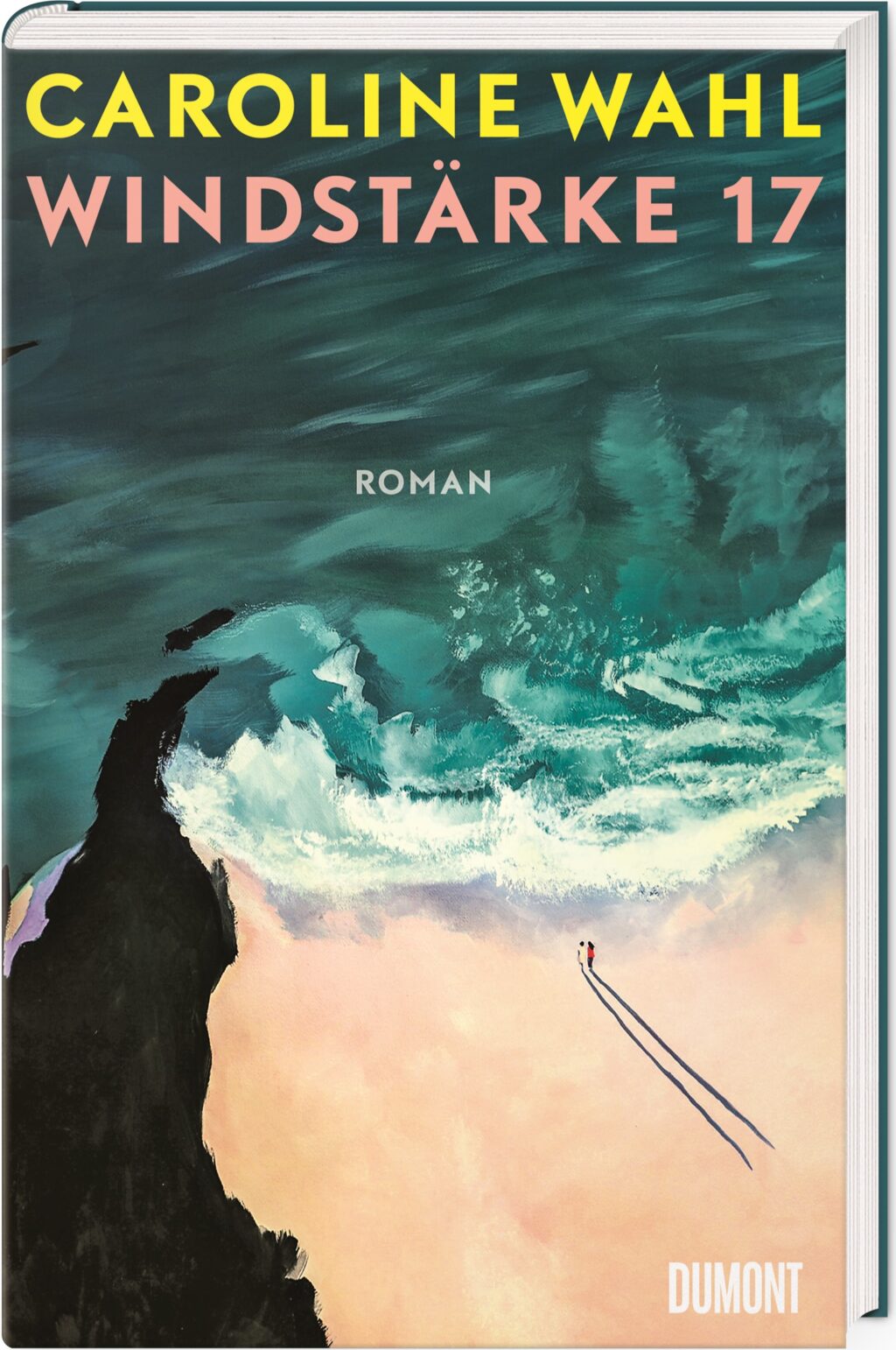
SM: While 22 Lengths centres on Tilda’s perspective, Gale Force 17 is written from Ida’s point of view. What was it like to write from this different perspective?
CW: It was a lot of fun, but it also hurt. Ida is very different from Tilda and to be able to throw myself into this perspective of a broken, young woman who carries so much anger, sadness but also lust for life was intense and great.
SM: The setting of Gale Force 17 on the Baltic Sea coast is very impressive. What attracted you to this location?
CW: I would say it was half coincidence and half fate that Ida ended up stranded on the island of Rügen in the Baltic Sea. Tilda and Ida love being in the water and although the sea is mentioned over and over again in 22 Lengths, it remains a place of longing that is far away for the two sisters. It was clear that the sea and Ida would be an explosive combination. And as she wants to put as much distance as possible between herself and her dead mother by train at the beginning of the story, she ends up at the end of the world – or the end of Germany – at the terminus in Stralsund. This is still not far enough, and so Ida puts the Baltic Sea between them too. Somehow it had to be an island. I had no connection to Rügen before, but then I went there at an advanced stage of the writing, and immediately fell in love with the place, and now I can’t think of a better location or adopted home for Ida.
SM: How has the reception of your second novel been so far compared to your first?
CW: The feedback so far has been positive, but 22 Lengths has been read by so many more people than Galeforce 17. I am very much looking forward to May, when the book is published.
SM: Will we be hearing more from Tilda and Ida?
No, Gale Force 17 is the end for now. But maybe in a few years I’ll write the mother’s story. Fun. Not fun. Who knows?
SM: Can you tell us something about what you are currently working on?
CW: Sadly not. But you can look forward to it!
SM: What would it mean to you if your books were translated into other languages?
CW: It means a lot to me. It is probably what it feels like when your child makes a career for themselves and moves out into the big wide world (to stick with the metaphor). It is yet another crossing of boundaries, a different kind of step that is somehow not quite tangible. I am so curious to see what paths 22 Length will take in other languages.
SM: At New Books in German we are always on the lookout for exciting new voices in German-language literature. Do you have a tip for us? Which contemporary authors would you recommend to us?
CW: Margit Mössmer: Das Geheimnis meines Erfolges (Leykam, 2020) is a great book that deserves more attention.
To read our recommendation of Gale Force 17, please click here

Caroline Wahl was born in Mainz in 1995. She grew up near Heidelberg and studied German language and literature in Tübingen, as well as German literature in Berlin. Afterwards, she worked in several publishing houses. She is now a full-time author.
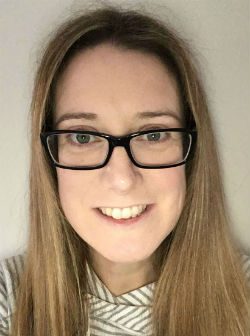
Sheridan Marshall freelance translator and editor and is Editorial Consultant to New Books in German.

